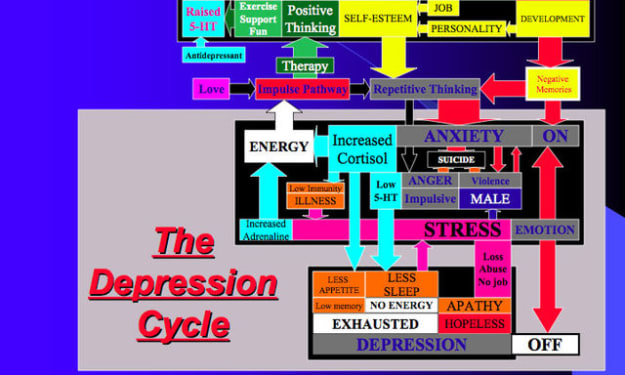3 Unkown Facts Why Men are Unable to Express Their Feelings Like Women
The Shocking Facts

We used to feel that ladies tend to show their feelings more transparently than men. Obviously, everybody is unique and a few men can be extremely moved and effectively express out loud whatever they feel. In any case, analysts attempt to explore why male folks don't articulate their thoughts as ladies do.
Men feel feelings equivalent to ladies.
"I feel as if he doesn't care," ladies are much of the time heard saying this when they can't get any criticism about their accomplice's sentiments. In any case, is that truly evident? While measurements demonstrate that ladies are more helpless to discouragement and tension, men are likewise impacted by psychological well-being conditions.
Did you have any idea that more than 30% of men will encounter sorrow eventually in their lives? Furthermore, roughly 9% of men report encountering sensations of wretchedness or uneasiness every day. Notwithstanding cultural assumptions for men to hide their feelings, it's pivotal to perceive the significance of tending to psychological well-being worries in men. That said, let’s investigate why men conceal their feelings.
The 3 Shocking Facts Why Men Can’t Express Their Feelings as Women
1. Social Stereotype
Shockingly, the familiar expression, "man up," seems to assume a critical part in this way of behaving. This term, characterized by the Cambridge English Word reference as "managing something all the more fearlessly," is only one cultural strain that twists the impression of manliness.
Research led by men's well-being noble cause Movember uncovers that close to 33% of men feel the strain to show up masculine or manly, with more youthful men, matured 18-34, encountering this at considerably more elevated levels (47%). Understanding these cultural impacts can assist us with beating obstructions to men's psychological well-being and prosperity.
Men every now and again show less apparent indications of psychological well-being concerns and are less inclined to examine them transparently. The report says that when ladies are discouraged, they every now and again show bitterness or express their sentiments, while men normally give indications of outrage, peevishness, or animosity. By understanding these orientation explicit contrasts in communicating psychological well-being difficulties, we can all the more likely recognize and address them.
Men don't express their sentiments, and it neutralizes them.
2. They just don't have the foggiest idea of how to articulate their thoughts
Nobody clarified for men how to communicate their thoughts. Cultural assumptions and youth molding frequently help men to be intense and apathetic, leaving them uncertain of how to communicate their sentiments.
While ladies may transparently communicate their misfortune, men will more often than not conceal their aggravation and seem emotionless. This cultural tension can make it trying for men to be powerless, as that is viewed as untouchable. Thus, men's personal prosperity might endure. By advancing open discussions about psychological well-being and breaking down generalizations, we can assist men with feeling good and enable to communicate their feelings.
3. It's something neurological
The Corpus Callosum, a piece of the cerebrum that connects the left and right side of the equator, is bigger in ladies than in men, prompting a higher capacity to feel and think all the while. Ladies can feel and think simultaneously.
Men, then again, will generally isolate their feelings from their viewpoints, bringing about aversion to examine close-to-home points. While this might prompt trouble imparting about delicate issues, it's critical to perceive and comprehend these orientation-based contrasts.
Wrapping Up
While both sexes can share some similar traits here and there, it is however imperative to note that in spite of their similarities, they are yet unique. In essence, even the manner in which they handle pressure can shift contingent upon social assumptions, physiology, and psychology.
About the Creator
Dea Favoured
I am a naturally born and experienced creative writer and wordsmith. My work cuts across generations, ages, sexes, and culture, and tends to educate, motivate, inform, and guide my audience to the path of innovation and revolution.
Enjoyed the story? Support the Creator.
Subscribe for free to receive all their stories in your feed. You could also pledge your support or give them a one-off tip, letting them know you appreciate their work.






Comments
There are no comments for this story
Be the first to respond and start the conversation.